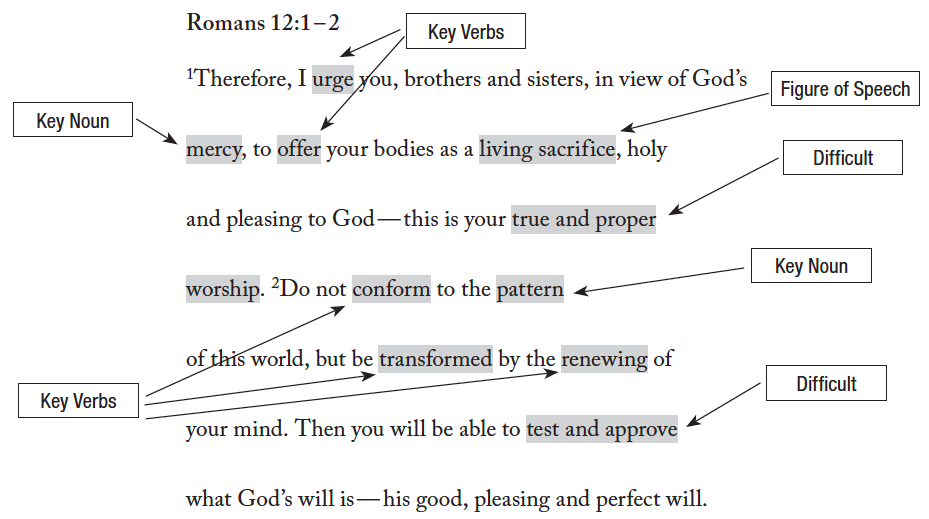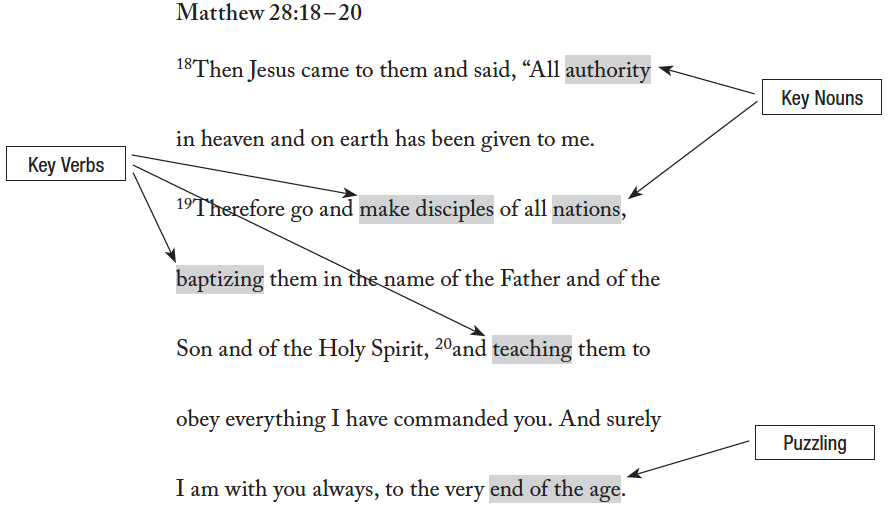UNIT 6:9 STUDY
Choose Your Words Carefully
Doing a word study properly takes time. Be realistic and admit that you cannot possibly study every word in your passage and still have any time for your friends. In fact, you don’t need to study every word. Most biblical passages are filled with words whose meanings are clear and plain to the average reader. But some words do demand more in-depth study, and you need wisdom to know which ones. What should you do at this point? Use the following guidelines to help you choose the words you need to study.
-
- Look for words that are crucial to the passage. Everything in the passage depends on the meaning of these words. They are loaded with historical or theological significance. They bear the weight of the passage. Often the crucial words in a passage will be the key nouns and/or verbs.
- Look for repeated words. Usually the author will signal theme words by repeating them, so pay close attention to words that are repeated (e.g., “comfort” in 2 Cor. 1:3–7, “blessed” in Matt. 5:1–12, or “remain” in John 15:1–11). Study these words for sure.
- Look for figures of speech. Here words are used not in a literal sense but as word pictures or images. When you read Jesus’ statement “I am the gate” (John 10:9) or read about trees “clapping their hands” (Isa. 55:12), you are looking at figures. Since the meaning of many figures or images is not automatically obvious, you may need to study them further. For example, the image of a lion refers to Jesus Christ in Revelation 5:5 and to Satan in 1 Peter 5:8.
- Look for words that are unclear, puzzling, or difficult. Perhaps you don’t understand the English definition of a word. Or you may find that English translations differ widely when it comes to this particular word. Or a writer may be using a word in a technical or specialized sense. A good rule of thumb here is that “the most important words are those that give you trouble,” and if a word gives you trouble, study it some more.
Now you give it a try. Print out Romans 12:1–2 and Matthew 28:19–20. Circle the words that you think merit further study. In the margin explain why you chose each word. Remember, look for crucial words, repeated words, images, and difficult words.
Now take a look at how we dealt with these same passages.


Don’t be surprised if you didn’t pick the same words we picked and don’t be alarmed if you picked fewer. We intentionally selected a lot of words to illustrate why a reader might choose to study them. What’s most important is that you think through why you would want to study certain words.